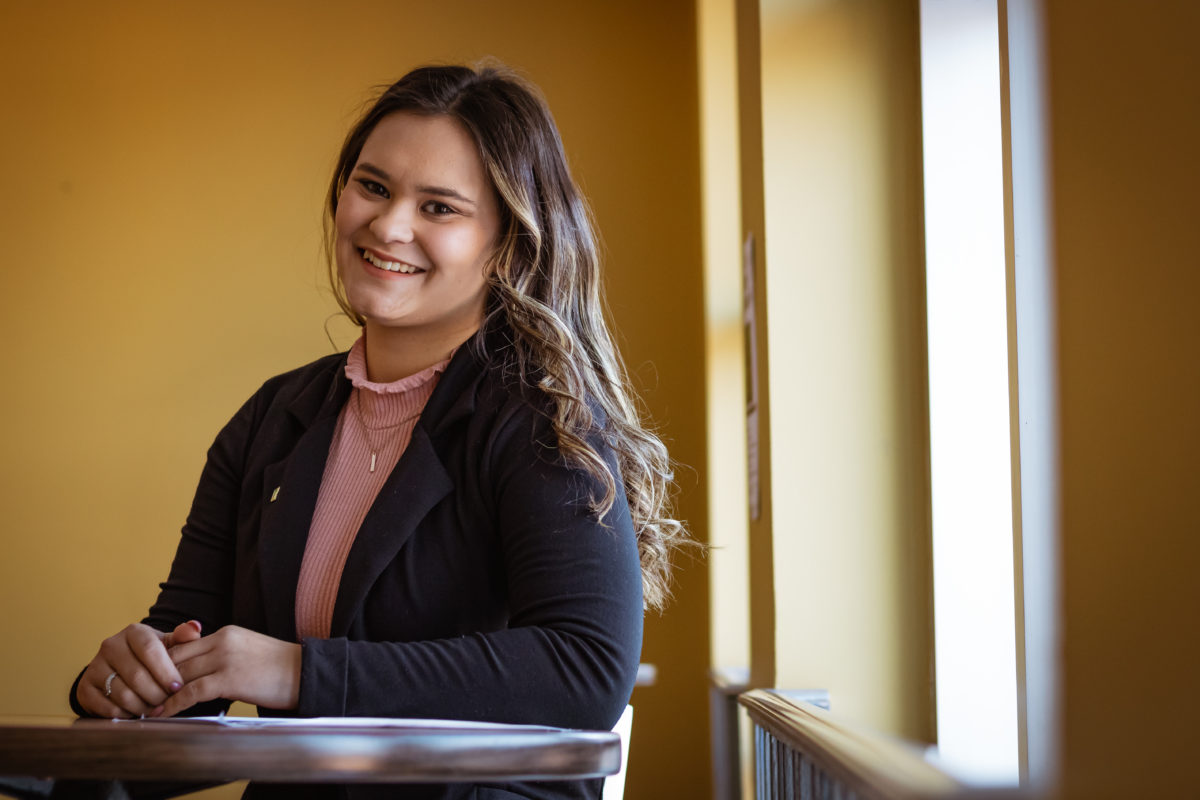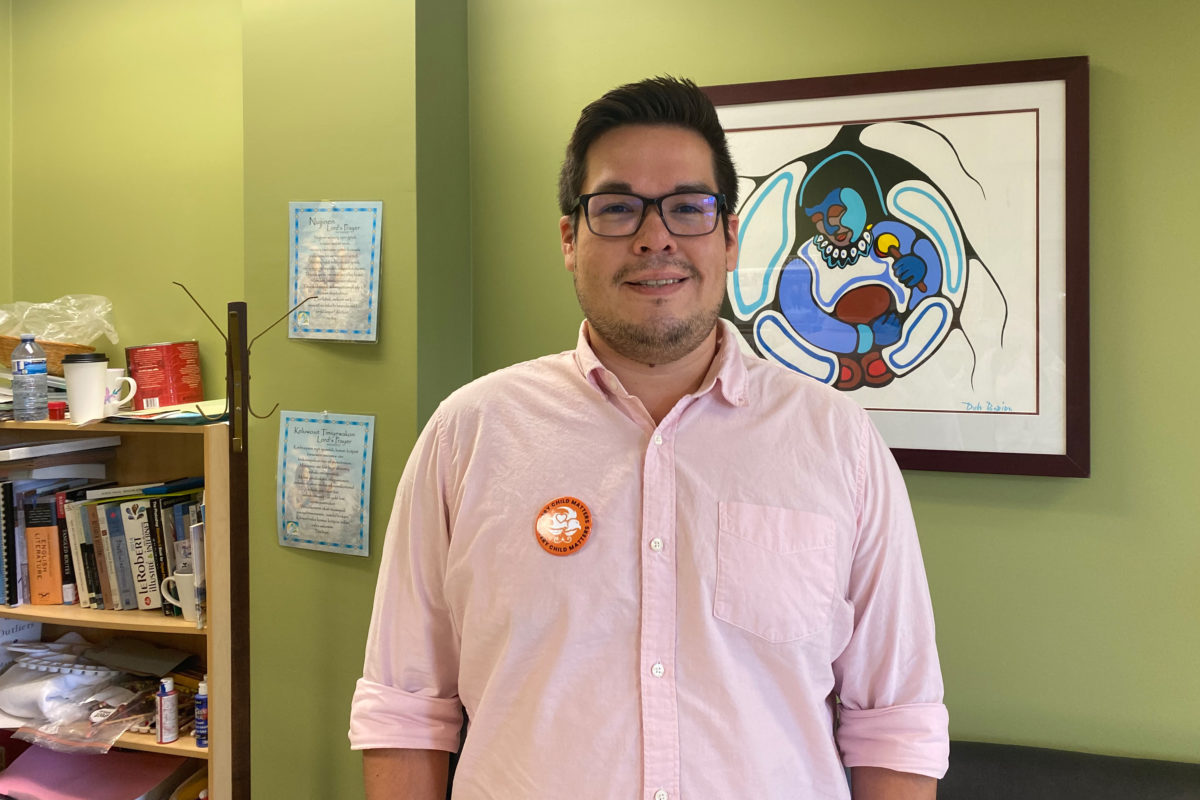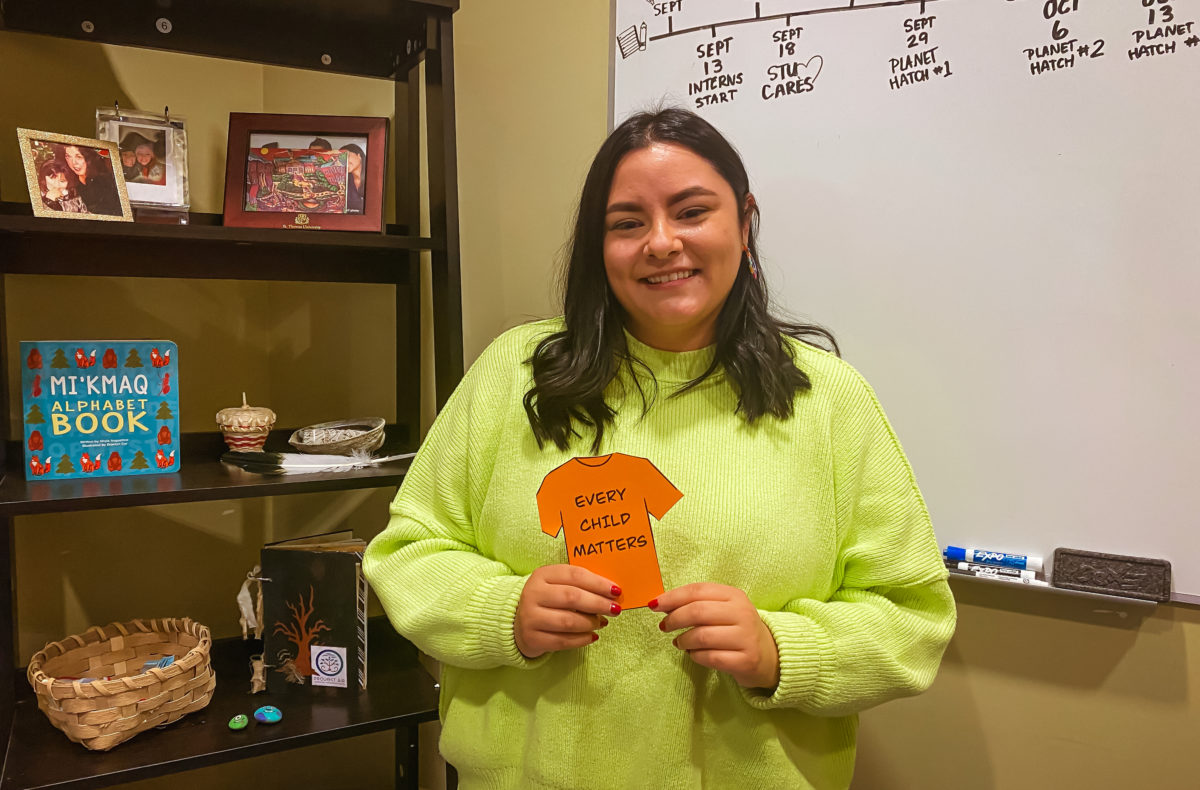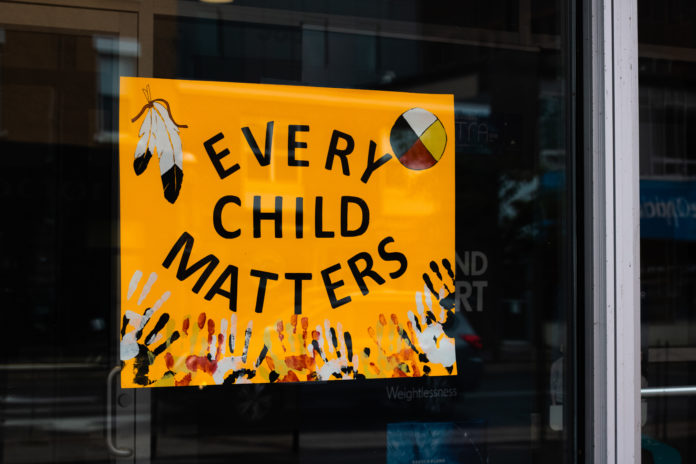Content warning: Please be advised this article discusses residential schools and genocide.
This story is part two of a two-part series about Truth and Reconciliation Day. Read part one here that discusses the university’s decision to close for the holiday this year.
Clarification: A quote in this story reads “…or not seeking more education on the subject.” Rachel Burke would like to clarify that she meant not seeking more education prior to the discovery of the unmarked graves and Canada recognizing a day for national Truth and Reconciliation. She hopes the activity mentioned inspires people who have just started their education journey.
Leanne Hudson said that Canada’s formal recognition of Truth and Reconciliation Day is a great start, but not everything that needs to be done.
“Thirteen-hundred graves is 1,300 children who never came home from [residential] schools, were never identified, can’t be identified,” said Hudson, a third-year St.Thomas University student. “It was also 1,300 families who were waiting for their child to return and they never did.”
Hudson, a student representative on the Senate Committee on Reconciliation, was part of the discussion about what the university should do on Sept. 30, formerly known as Orange Shirt Day.

Hudson said that the committee didn’t want students to treat the day off as a long weekend. To combat this, they decided to close on Sept. 30 while holding educational events the day before.
“We should know what’s going on,” said Hudson. “We should have time to learn about that, whether it fits in our academic schedules or not.”
Trenton Augustine, Indigenous student services coordinator, is organizing events on campus for Sept. 29. The day will start with an informational booth in James Dunn Hall from 11 a.m. to 2 p.m.
At the booth, students, faculty and staff can come to learn about residential schools and their impact on Indigenous communities. They will also offer materials on the 94 Calls to Action.
An honour and reflection ceremony will be held at 2 p.m., which will include a smudging and honour song in the lower courtyard.
“Just to pay respects to those impacted and the survivors,” said Augustine. “Especially now with the ever growing number of Indigenous graves and children being found.”

Next is a reflection activity in JDH, which is being organized by the experiential learning office. Students will be encouraged to write a prayer, thought or reflection about Truth and Reconciliation Day on the inside of an orange piece of cardboard cut out in the shape of a t-shirt.
Rachel Burke is the Indigenous experiential and community-based learning coordinator at STU.
“It’s a way for students who even don’t know what Orange Shirt Day is about or know the history of residential schools [to] still share without feeling like they are going to be judged for not knowing or not seeking more education on the subject,” said Burke.
The cardboard t-shirts will be hung up alongside felt moccasins in the lower courtyard, made by students in a workshop earlier this week.
After the reflection activity, there will be a student panel in Kinsella featuring members of the student reconciliation committee at STU regarding residential schools, Orange Shirt Day and Truth and Reconciliation.

Augustine said people are encouraged to wear orange shirts on the holiday and the day before. ‘Every Child Matters’ buttons are available in the Wabanaki Student Centre, which is open to any students who want to talk and learn more after the holiday.
The events around campus are open to all Indigenous and non-Indigenous students and staff. Augustine said the activities are an opportunity for students to learn.
“It’s important for the university to take more of a leadership role,” said Augustine. “For the province, as well as Canada, to show how important this day is, this new National Day of Truth and Reconciliation.”
Augustine said it is important for STU to educate students and the wider Fredericton community on Indigenous holidays, “to show how serious we take truth and reconciliation here on campus.”

